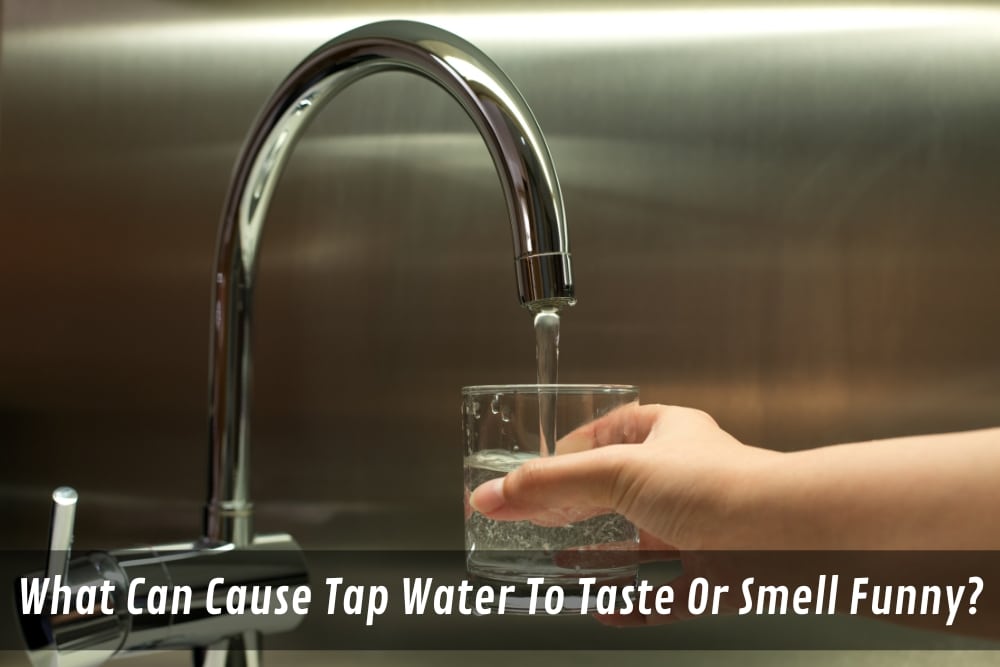If you’re someone who’s particular about the quality of your tap water, you may have considered using a tap water filter to improve its taste and odour. However, even with a filter, you might still experience issues with the taste or smell of your water. That’s because there are various factors that can contribute to the funky taste or odour of tap water. In this blog, we will discuss some of the common causes of tap water issues and how they can be addressed.
Chlorine level
Chlorine is a common disinfectant used in water treatment plants to eliminate harmful bacteria and viruses from the water supply. It is also used to prevent the growth of algae and other pathogens in the water distribution system.
However, excessive levels of chlorine in drinking water can cause an unpleasant taste and odour. This can be a concern for some people. The acceptable level of chlorine in drinking water ranges from 0.2 to 5 parts per million (ppm), depending on local regulations.
If the level of chlorine in the water supply exceeds the acceptable limit, it can cause adverse health consequences. Examples of these are skin irritation, breathing problems, and digestive illnesses. Therefore, it is crucial for the water treatment professional to ensure that the level of chlorine in the water supply is within the acceptable limit.
On the other hand, insufficient levels of chlorine in the water supply can result in bacterial growth. This can pose a health risk to the public. In such cases, a boil water advisory may be issued by the local health agency. It will require residents to boil their drinking filtered water before consumption.
Natural minerals
Natural minerals are minerals that are naturally occurring in the water supply. They can be beneficial or harmful to human health, depending on their concentration and type. Some common beneficial minerals found in natural water sources include calcium, magnesium, potassium, and sodium. These minerals can improve taste and promote good health, as they play an essential role in the human body’s various functions.
However, some harmful minerals can pose a significant health risk if present in high concentrations in drinking water. Examples are arsenic, lead, mercury, and fluoride. Long-term exposure to these minerals can cause adverse health effects such as cancer, developmental problems, and neural disorders.
Water treatment professionals use various methods. They may use reverse osmosis, carbon filtration, and iron filters, to remove harmful minerals from the water supply. These methods help to improve the quality of drinking water by reducing the mineral content to safe levels.
However, it is worth noting that the mineral content of the water can also affect the water’s hardness. This refers to even a small amount of calcium and magnesium ions present in the water.
Hard water can cause problems such as mineral buildup in pipes, appliances, and plumbing fixtures, reducing their lifespan and efficiency. Water softening systems can help to reduce the hardness of the water and prevent these issues. Examples are ion exchange and salt-free water softeners.
Copper pipes and fittings
Copper pipes and fittings are widely used in plumbing systems because of their durability. They are resistant to corrosion. However, over time, copper pipes and fittings can corrode, leading to various problems such as leaks, discoloured water, and metallic taste.
Copper corrosion can occur due to various reasons such as high water acidity, low dissolved oxygen levels, and high chlorine levels. Corroded copper pipes and fittings can release copper ions into the water supply. This can lead to copper toxicity, which can cause digestive illnesses, headaches, and nausea.
Plumbers can help by identifying and addressing copper corrosion issues in plumbing systems. They can inspect the copper pipes and fittings for signs of corrosion. They may look for discoloured water or green stains around the fittings.
Once the issue is identified, plumbers can recommend appropriate solutions. Examples are replacing corroded pipes and fittings, installing water treatment systems, or adjusting the water chemistry to prevent further corrosion.
One common solution for addressing copper corrosion in plumbing systems is installing a pressure tank and a sacrificial magnesium rod. The pressure tank helps to regulate water pressure. Meanwhile, the magnesium rod acts as a sacrificial anode. This prevents the copper pipes and fittings from corroding.
Plumbers can also install water systems to remove excess copper ions from the water supply. Examples are carbon filters, reverse osmosis systems or ion exchange systems. There’s a wide range of water filters in the market. Additionally, plumbers can recommend adjusting the pH levels of the water or reducing chlorine levels to prevent copper corrosion.
Dissolved solids or organic matter
In some cases, tap water may have a musty or earthy taste and smell. This can be caused by the presence of dissolved solids or organic matter in the water. To address this issue, you can use a jug filter or install a reverse osmosis system to remove impurities.
Hydrogen sulphide gas
If you notice a rotten egg smell in your tap water, it may be the presence of hydrogen sulphide gas. This gas is produced by bacteria that thrive in stagnant water or corroded metal or plastic pipes. To address this issue, you may need to flush your water mains or install a pressure tank. Be sure to check and replace your tap washers if necessary.
Discharge from boats
Boat ramps and boat washing areas can also contribute to tapping water issues. Discharge from boats, boat trailers, and boat engines can contain hazardous chemicals that can contaminate the water supply. To reduce the risk of pollution, it is important to avoid using boat ramp taps for drinking water.
It is important to note that tap water issues can vary depending on your location and the source of your water. Some areas may have higher levels of contaminants or minerals in the water, which can affect the taste and smell. If you have concerns about your tap water quality, you should check your local drinking water quality report. You can also contact your water service provider.
In conclusion, tap water taste and smell issues are common complaints, but many can be addressed by using acceptable alternatives such as water filters or softeners. However, it is important to note that some tap water issues can pose health risks and may require the attention of a professional plumber, a water treatment professional or a health agency. By staying informed about your drinking water supply and taking steps to address taste and smell issues, you can ensure that you and your family have access to safe and reliable tap water.
Get in touch with Apex Plumbing Services today if you want professional help with water filter repair and other plumbing needs. Our team of experienced plumbers can provide you with the advice and guidance you need to ensure your water filters are properly installed and functioning.


